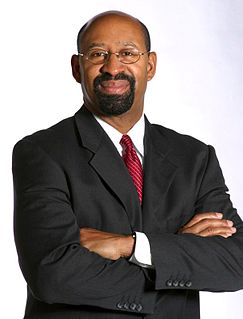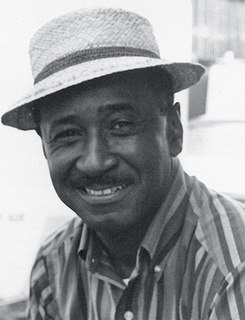A Quote by Jemele Hill
Whenever black folks speak candidly about the horrors of police brutality, the default reaction in the United States isn't to start disrupting and dismantling the system of prejudices that enables the abuse of black people, but to demand silence and, sometimes, outright obedience.
Related Quotes
You have to know the forces that are against you and that are trying to break you down. We talk about the problems facing the black community: the decimation of the black family; the mass incarceration of the black man; we're talking about the brutality against black people from the police. The educational system.
You're not going to have the police force representing the black and brown community, if they've spent the last 30 years busting every son and daughter and father and mother for every piddling drug offense that they've ever done, thus creating a mistrust in the community. But at the same time, you should be able to talk about abuses of power, and you should be able to talk about police brutality and what, in some cases, is as far as I'm concerned, outright murder and outright loss of justice without the police organization targeting you in the way that they have done me.
There's no reason why you can't say "August Wilson, playwright" even though all of my work, every single play, is about black Americans, about black American culture, about the black experience in America. I write about the black experience of men, or I write about black folks. That's who I am. In the same manner that Chekhov wrote about the Russians, I write about blacks. I couldn't do anything else. I wouldn't do anything else.
Many White people are not sensitive to the kind of abuse that African Americans, especially younger African Americans, receive at the hands of police officers and police departments. I think for most Whites their experience with the police has been good or neutral because they don't interact with the police as much as those in the Black community.
Black is confusing. Where does the line start and stop with what is black and what isn't black? People that are mixed-race, or, imagine being from Sri Lanka or Bangladesh, people might say you're black but your features are so non-black, like you've got straight hair, you've got like a sharper nose, or such.
































